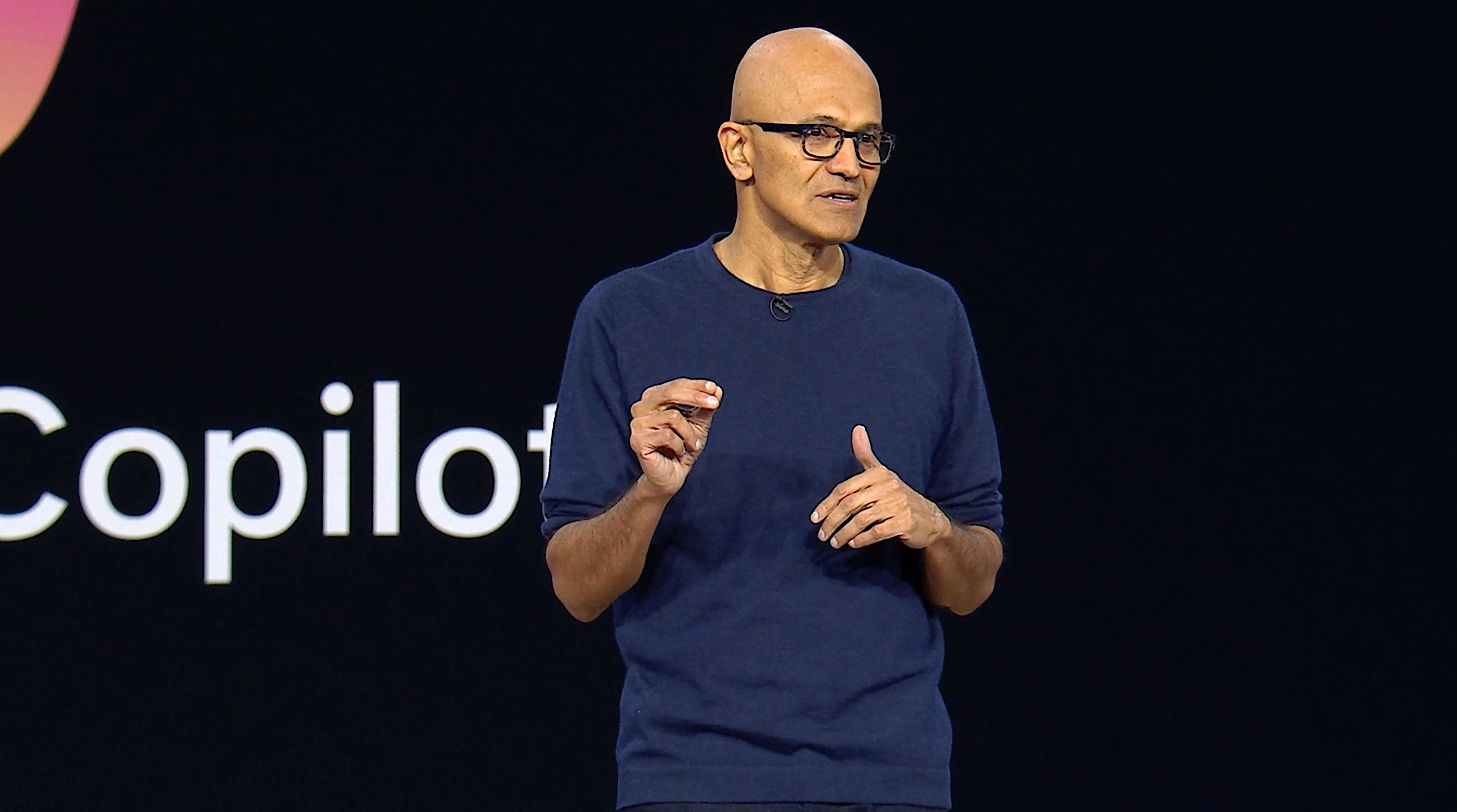Copyright SiliconANGLE News

Microsoft Corp. beat expectations again for its latest quarterly results, helped by a 40% increase in its Azure cloud business — but its stock fell almost 4% in late-trading after it revealed the scale of its investment in OpenAI and told analysts it will hike its capital expenditures again this fiscal year. The company reported fiscal first-quarter earnings before certain costs such as stock compensation of $3.72 per share, easing past Wall Street’s target of $3.67, while its total revenue rose 18%, to $77.67 billion, ahead of the $75.33 billion analyst forecast. However, Microsoft revealed a major drop in profit due to what it termed was an “equity method investment” in OpenAI Group PBC, resulting in a 41-cents-per-share hit to its earnings and a $3.1 billion drop in its net income. Even so, the company’s bottom line was still healthy at $27.7 billion, up from $24.67 billion in the year-ago quarter. The most impressive result came from Microsoft’s Intelligent Cloud unit, which includes the Azure cloud business. It delivered total revenue of $30.9 billion in the quarter, up 28% from a year earlier and above the Street’s estimate of $30.25 billion. The cloud business continues to be one of the biggest drivers of Microsoft’s growth, as it’s benefiting immensely from the rising demand for artificial intelligence services. Last quarter, the company revealed the true scale of Azure’s infrastructure business in dollar terms for the first time, saying it generated $75 billion in revenue during its fiscal 2025 year, up 34% from a year prior. Looking to the current quarter, Microsoft said it’s calling for revenue of between $79.5 billion and $80.6 billion. The midpoint of that range is just ahead of the Street’s forecast for $79.95 billion in revenue. Microsoft Chairman and Chief Executive Satya Nadella (pictured) likened the company’s “planet-scale cloud” to an “AI factory” and said it’s driving broad diffusion and real-world impact for thousands of customers. “It’s why we continue to increase our investments in AI across both capital and talent to meet the massive opportunity ahead,” he said. What the company’s confusing relationship with OpenAI will mean for that opportunity remains unclear, though. On a conference call with analysts, Nadella explained that the AI firm’s recent recapitalization, which cemented its structure as a nonprofit with a controlling stake in its for-profit business, means that Microsoft now holds a 27% stake in the public benefit corporation that’s valued at $135 billion. Nadella told analysts that the relationship between the two firms is “one of the most successful partnerships and investments our industry has even seen,” and said the two will continue to enjoy mutual benefits from each other’s growth. He also revealed that OpenAI has agreed to spend an additional $250 billion on Azure’s cloud infrastructure, though he said Microsoft no longer has the first right of refusal should OpenAI need additional cloud computing capacity. Microsoft’s partnership with OpenAI predates the arrival of ChatGPT, and though it was initially seen to enjoy massive benefits from the relationship, the companies have become increasingly at odds, competing in various aspects of the AI industry. Just over a year ago, Microsoft confirmed it sees OpenAI as a competitor in its annual report to shareholders, listing it alongside peers such as Google LLC, Meta Platforms Inc. and Amazon Web Services Inc. Valoir analyst Rebecca Wettemann told SiliconANGLE that there’s still a lack of clarity around Microsoft’s partnership with OpenAI that raises concern about the future impact on its profitability in AI. “Although this week’s deal gives both sides more flexibility in the short term, a lot depends on how AGI plays out, and who gets to decide when we actually get there,” she said, referring to artificial general intelligence, or AI systems that surpass the reasoning capabilities of humans. Investors jittery over AI spending plans One advantage Microsoft has over OpenAI is money, and on the conference call Chief Financial Officer Amy Hood confirmed that it plans to spend much more of it on building out the cloud infrastructure it needs to support its AI services. Capex came to $34.9 billion in the first quarter, above the $30 billion figure she had told analysts the company would spend in July. Hood also said the company will continue to grow its expenditures throughout fiscal 2026, adding that the growth rate will be higher than what it was in 2025. Three months ago, she had said the company was likely to slow its rate of capex growth. Wettemann said the increased spending plans have caused concerns among some investors, who are worried about the eventual outcomes. “While Microsoft beat estimates, the volume of chatter about an AI bubble is going up day by day, and it has made some big bets without showing a lot of real results for customers at this point, compared to some of its competitors,” she said. However, not everyone agreed with that view. Bryan Hayes of Zacks Investment Research told SiliconANGLE that Microsoft’s investments in Copilot were one of the main drivers of growth in its Productivity and Business Processes segment, which includes its Officer productivity suite and LinkedIn. That business delivered revenue of $33 billion in the quarter, beating the Street’s forecast of $32.33 billion. Microsoft 365 Commercial cloud revenue was up 17%, while Consumer revenue jumped 26%. According to Hayes, those numbers make it clear that the company is capitalizing on its investments in Copilot, which has been tightly integrated with Office, GitHub, Windows and other software services. “During the last fiscal year, Copilot applications achieved significant milestones, surpassing 100 million monthly active users across commercial and consumer segments,” Hayes said. “By reframing Microsoft as a platform that enables AI-native innovation, Nadella aims to extend the company’s dominance beyond cloud and productivity into the AI-native economy.” Microsoft’s More Personal Computing unit, which includes revenue from Windows, search advertising, devices and the Xbox console, also grew. Revenue there was up 4% to $13.8 billion, surpassing the Street’s consensus estimate of $12.83 billion. The company delivered its financial results just hours after Azure and Microsoft 365 experienced a major outage, taking down various websites and services across the globe. Microsoft promised it would fully recover before the day is out, but it probably did little to ease the concerns of shaky investors. Despite today’s after-hours slump, Microsoft’s stock is still up 28% in the year to date. Image: Microsoft/livestream



